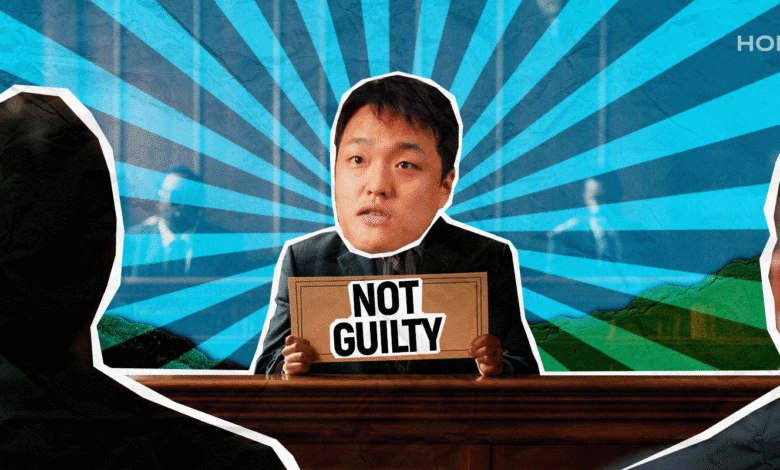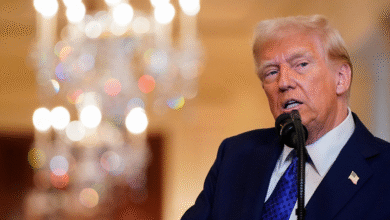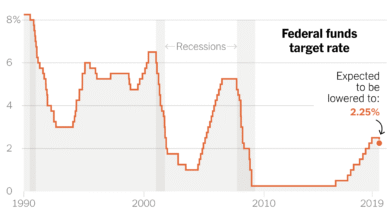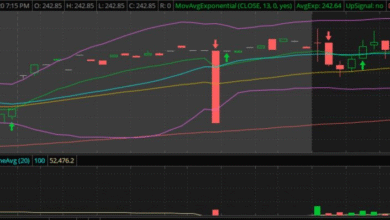Do Kwon Guilty Plea in $40B Terra Luna Collapse

In a significant development in the world of cryptocurrency fraud, Do Kwon’s guilty plea has sent shockwaves through the industry. The co-founder of Terraform Labs is facing serious charges linked to the catastrophic $40 billion Terra Luna collapse, which drastically impacted thousands of investors. A U.S. judge recently confirmed that Kwon will plead guilty to conspiracy and wire fraud charges stemming from misleading claims regarding the stability of UST, especially after its dramatic depeg in May 2022. These alleged actions not only led to devastating financial losses but also triggered a broader investigation into the practices of cryptocurrency firms. As he prepares for his court appearance, the implications of Do Kwon’s guilty plea raise questions about accountability and regulation in the rapidly evolving sphere of digital currencies.
The fallout from the Terra Luna debacle continues to reverberate through the cryptocurrency landscape, particularly with the news of Do Kwon’s impending plea. Known for his role in the disruption that followed the collapse of his digital currency projects, Kwon’s admission to guilt marks a critical moment in the ongoing battle against financial misconduct in the crypto realm. This situation highlights broader themes of investment risk and ethical responsibility, further complicating the narrative surrounding the ill-fated UST and LUNA coins. As revelations about Terraform Labs surface, industry watchers are keen to see how this will shape future regulations and investor protections in this volatile market.
Do Kwon Guilty Plea: Implications for the Cryptocurrency Market
The announcement of Do Kwon’s guilty plea in connection with the Terra Luna collapse marks a significant turning point in the ongoing scrutiny of the cryptocurrency industry. As the co-founder of Terraform Labs, Kwon’s decision to plead guilty to conspiracy and wire fraud charges signals a broader reckoning for those involved in the burgeoning crypto space. In the aftermath of the failure of the terrausd (UST) and luna (LUNA) cryptocurrencies, which resulted in a staggering loss of $40 billion, Kwon’s case highlights the critical need for regulatory oversight and investor protection in the cryptocurrency market.
With Kwon’s admission of guilt, many are now questioning the future of similar projects and the implications for investor confidence in cryptocurrencies. The damages caused by the UST LUNA depeg drew attention to the risks inherent in algorithmically stable cryptocurrencies. Investors seeking to navigate the volatile landscape of digital assets must remain vigilant and informed, as the repercussions of this case are likely to resonate throughout the industry, impacting regulatory policies and influencing other ongoing legal battles related to cryptocurrency fraud.
Understanding the Terra Luna Collapse: Lessons Learned
The Terra Luna collapse serves as a stark reminder of the vulnerabilities within the cryptocurrency market. The algorithmic stablecoin, UST, was designed to maintain its $1 peg through a complex system of buybacks and liquidity pools. However, following the depegging event in May 2022, these mechanisms failed spectacularly, leading to a loss of trust and value that swept across the entire crypto ecosystem. As we analyze the events leading up to the collapse, it becomes evident that Kwon’s assurances about the stability of UST were not backed by the necessary financial safeguards, contributing to the massive fallout.
This incident has underscored the importance of transparency and regulatory compliance in the cryptocurrency space. Following the collapse, numerous investors lost their life savings as LUNA’s market cap plummeted. The investigation by U.S. authorities and the charges laid against Kwon serve as a cautionary tale for future entrepreneurs in the crypto domain. Lessons learned from the Terra Luna situation can drive the development of safer and more reliable financial products, as investors increasingly demand accountability and ethical practices from blockchain projects.
Legal Ramifications of Do Kwon’s SEC Settlement
The recent SEC settlement involving Do Kwon and Terraform Labs represents a crucial moment in the ongoing battle against cryptocurrency fraud. Kwon’s agreement to pay an $80 million civil fine and adhere to a crypto transaction ban comes in the wake of significant scrutiny over the collapse of UST and LUNA. The SEC’s involvement highlights the regulatory body’s commitment to addressing malpractices within the cryptocurrency market, and the legal repercussions faced by Kwon could set a precedent for future cases in this rapidly evolving industry.
The charges against Kwon—ranging from securities fraud to wire fraud—demonstrate the potential legal vulnerabilities that cryptocurrency founders may face as regulations begin to tighten. The SEC’s aggressive approach to combating fraud in the sector will likely inspire other regulatory agencies worldwide to follow suit. As the cryptocurrency landscape continues to evolve, stakeholders must be aware of the legal responsibilities that come with operating in this space, especially in light of cases like Kwon’s, which underscore the seriousness of compliance and ethical conduct.
Impact of the Fallout from UST LUNA Depeg
The depeg of UST and subsequent collapse of LUNA has sent shockwaves through the cryptocurrency community, sparking debates on the viability of algorithmic stablecoins. This incident raised fundamental questions about the reliance on algorithms to stabilize cryptocurrencies without sufficient backing. The fallout from the depeg event has not only led to financial ruin for many investors but also catalyzed discussions on the need for more robust regulatory frameworks to protect users from the inherent risks associated with such digital assets.
In the aftermath, many industry players are reassessing their approaches to development and investment in stablecoins. Investors are now seeking safer alternatives, as the failure of UST exemplified the potential pitfalls of relying on untested financial models. The urgency to establish guidelines and standards for cryptocurrencies has never been greater, and the Terra Luna collapse serves as a cautionary example that emphasizes the necessity for due diligence and regulatory adherence in the crypto market.
The Role of Transparency in Cryptocurrency Projects
The events surrounding the Terra Luna collapse and Do Kwon’s upcoming guilty plea have spotlighted the critical importance of transparency in cryptocurrency projects. Investors need to have full access to information about the underlying mechanisms and risks of digital assets they engage with. Transparency fosters trust and allows potential investors to make informed decisions, thereby reducing the likelihood of fraud and misconduct within this evolving market.
Moreover, increased transparency can also lead to better compliance with regulations, as companies that openly share information are less likely to engage in deceptive practices. As the cryptocurrency landscape continues to mature, projects must prioritize clear communication regarding their operations, policies, and risks. By doing so, they can foster a safer environment for investors while contributing to the overall growth and legitimacy of the digital asset sector.
How Regulatory Oversight Could Change the Cryptocurrency Landscape
As the fallout from the Terra Luna collapse continues to reverberate through the cryptocurrency community, there is an increasing call for regulatory oversight to ensure that such incidents do not occur in the future. The SEC’s involvement in Kwon’s case exemplifies the authorities’ commitment to scrutinizing and holding accountable those who mislead investors. Enhanced regulation may not only protect investors but also promote healthier competition within the industry.
The implementation of regulatory measures can help establish a more structured environment in which cryptocurrency projects operate, potentially leading to increased legitimacy and trust among users. As market dynamics change, it is crucial for all stakeholders, including developers and investors, to adapt to the evolving landscape of cryptocurrency governance. By embracing regulatory oversight, the industry can work towards building a more secure and sustainable future for digital assets.
Consequences for Investors Involved in Terra Luna
Following the collapse of LUNA and the depeg of UST, many investors found themselves grappling with significant financial losses. The magnitude of the collapse, amounting to nearly $40 billion, serves as a stark reminder of the inherent risks involved in cryptocurrency investments. As legal proceedings unfold against Do Kwon, affected investors are left pondering their options for recourse and the potential recovery of lost funds.
While some may seek to join litigation efforts against Terraform Labs and Kwon, the path to recovery can be fraught with challenges. Investors must navigate a complex legal landscape, all while the ongoing stigma of the collapse casts a shadow over the broader cryptocurrency market. Consequently, this case may inspire a more cautious approach to future investments, as individuals reassess their risk tolerance and scrutinize the integrity of projects before committing.
Rebuilding Trust After the Terra Luna Incident
Rebuilding trust in the cryptocurrency industry following the Terra Luna collapse will require significant effort from all participants. The fallout from Kwon’s alleged deception has created a chilling effect, leading many to question the reliability of existing and future cryptocurrency projects. Restoring confidence will necessitate transparency, reliability, and accountability from crypto innovators, particularly as regulatory agencies step up their oversight roles.
Moreover, the lessons learned from the collapse must be translated into robust practices that prioritize investor protection. As projects begin to emerge from the shadows of this crisis, stakeholders must advocate for higher standards of ethical conduct and transparency. By doing so, the cryptocurrency industry can forge ahead with a renewed commitment to integrity, fostering a more resilient ecosystem that is ready to tackle future challenges.
Final Thoughts on the Evolution of Cryptocurrency Regulation
The Terra Luna collapse and the ensuing legal challenges faced by Do Kwon signify a pivotal moment in the evolution of cryptocurrency regulation. The need for a more structured regulatory framework has never been more pronounced, as incidents of fraud become increasingly common in the rapidly expanding digital asset market. Policymakers are now poised to take a closer look at how best to enforce regulations that protect investors while fostering innovation.
As the cryptocurrency landscape continues to develop, it will be crucial for industry participants to engage with regulators to shape policies that promote growth while ensuring accountability. The outcome of Kwon’s legal proceedings will undoubtedly influence the future of cryptocurrency regulation, signaling to projects embarking on similar paths the importance of compliance and ethical practices in building a sustainable and trustworthy industry.
Frequently Asked Questions
What charges will Do Kwon plead guilty to related to the Terra Luna collapse?
Do Kwon plans to plead guilty to U.S. conspiracy and wire fraud charges that stem from the $40 billion collapse of the Terra Luna cryptocurrency projects.
How did Do Kwon’s guilty plea relate to the UST LUNA depeg?
The guilty plea involves accusations that Do Kwon misled investors about the algorithm designed to maintain the UST’s $1 peg, which significantly contributed to its depeg in May 2022.
What are the implications of the Do Kwon SEC settlement for investors?
The Do Kwon SEC settlement includes an $80 million civil fine and a crypto transaction ban, indicating a significant penalty for Kwon’s role in the cryptocurrency fraud surrounding the Terra Luna collapse.
Why did prosecutors accuse Do Kwon of fraud in connection with the Terra Luna project?
Prosecutors accused Do Kwon of misleading investors by falsely asserting the stability of UST’s peg and secretly manipulating token purchases to inflate LUNA’s price, leading to massive financial losses.
What was the extent of losses tied to the Do Kwon charges after the Terra Luna collapse?
The Terra Luna collapse resulted in an estimated $40 billion in losses for investors, a central issue in the charges against Do Kwon for conspiracy and wire fraud.
What are the specific allegations against Do Kwon regarding the Terraform Labs charges?
The allegations against Do Kwon include securities fraud, wire fraud, commodities fraud, and conspiracy to commit money laundering, all related to the misleading claims about UST and LUNA.
When did the Terra Luna collapse and the subsequent Do Kwon guilty plea occur?
The Terra Luna collapse occurred in May 2022, while the announcement of Do Kwon’s guilty plea was confirmed by a U.S. judge on Tuesday.
What further actions are expected following Do Kwon’s guilty plea in the Terra Luna case?
Following Do Kwon’s guilty plea, further legal proceedings including sentencing and implementation of the SEC settlement terms will likely take place, impacting his financial dealings and responsibilities.
How does Do Kwon’s case reflect broader issues in cryptocurrency regulation?
Do Kwon’s case highlights significant concerns regarding investor protection and the need for clearer regulations in the cryptocurrency market, especially following massive fraud cases like the Terra Luna collapse.
Will Do Kwon face additional legal troubles beyond his guilty plea?
Yes, beyond his guilty plea, Do Kwon may face ongoing legal challenges related to the multiple counts of fraud and allegations of misconduct linked to his role at Terraform Labs.
| Key Points |
|---|
| Do Kwon is the co-founder of Terraform Labs and has announced a guilty plea regarding charges related to the collapse of his cryptocurrencies, TerraUSD (UST) and Luna (LUNA). |
| He faces U.S. conspiracy and wire fraud charges tied to the $40 billion loss from the collapse of these currencies in 2022. |
| In January, Kwon pleaded not guilty to a nine-count indictment, including charges of securities fraud and money laundering conspiracy. |
| Prosecutors allege that Kwon misled investors about UST’s value maintenance after its depegging. |
| Kwon engaged in secret token purchases to artificially inflate the price of UST, contributing to LUNA’s rise to a market cap of $50 billion. |
| As part of a settlement with the SEC, Kwon agreed to an $80 million civil fine and is subject to a ban on cryptocurrency transactions starting in 2024. |
Summary
Do Kwon’s guilty plea marks a pivotal moment in the legal battle following the catastrophic $40 billion collapse of his Terra Luna projects. This significant admission of guilt acknowledges the serious allegations of conspiracy and fraud that misled investors, contributing to the massive loss in value of UST and LUNA. This case serves as a crucial reminder of the risks associated with cryptocurrency investments and the responsibilities of those involved in overseeing such projects.




